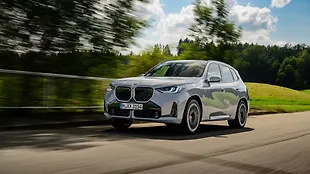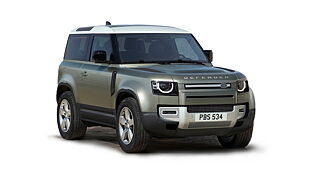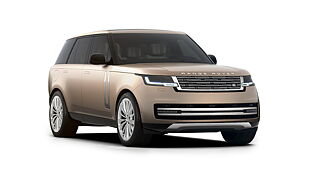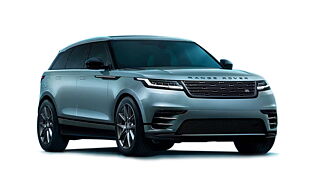What is it?

Back in May, Jaguar Land Rover grabbed the headlines with the arrival of its 2.0-litre petrol iteration of the 2019 Range Rover Sport. It being around Rs 17 lakhs cheaper than the previous entry level version was reason enough to catch all the right attention. But seriously; can 300bhp and 400Nm strike the right chord with the steep reputation that a Range Rover Sport needs to live up to? You’ll have the answers soon, but let’s get going on the exterior design first.

Setting your eyes on the RR Sport is nothing short of an event. For me, there’s no better illustration of heritage and distinctive design than what’s perceivable from the Land Rover stable. As it so happens, the ultimate show of power is clearly indisputable, which is why some of the most powerful people are influenced to ferry it about. Motorists move out of your way, humans literally drop jaws, and the fairer sex have finally laid eyes on who’s paying their future bills. But I calmly flush my emotions down the drain since I’m just a motoring journalist; a ticket to live life briefly on the other side of every spectrum.

Overall, the Range Rover Sport’s imposing stance with large square-ish proportions, and clean design lines along with those chunky wheels, lend it an opulent character. The magnificence here lies in its design simplicity, and all this charm renders it worthy of only the wealthy and affluent. This is what sets the Range Rover Sport apart from anything else on the road.

How is it on the inside?

Ascend onto the driving seat of the RR Sport, and you’re instantly embraced by the lush and elegant cabin, with scores of soft touch materials. We truly appreciate the more angular approach towards the interior design; a nice deviation from the current trend of curves.

What’s more, the combination of brushed aluminium inserts, dark trim materials and those multiple touchscreens not only look classy, but the sense of sophistication just immerses you. That aside, both touchscreens span a considerable portion of the dash which give it a truly futuristic touch.

Additionally, these screens show all data via the superior high-res graphics and excellent frames rates with good touch sensitivity and zilch lag. The upside? Well, reading and toggling the screens on the go is a lot easier; that’s of course after you get familiar with the user interface.
But, what I immediately appreciated, are the physical controls for the air-con and volume functions; unlike some recent Volvos which can get distracting. That apart, we felt that the oddly placed power window switches need you to stretch that extra bit. Not something you’d expect in a car like this.

As for the front seats, they’re fulfilling thanks to them being large, with ample support from the cushioning, contours and the lumbar adjust. There’s spades of head room and shoulder room too. Moreover, finding that sweet driving position wasn’t just effortless, spending long hours turned out to be a pleasant experience, by far. Besides that, there’s adequate cubby storage inside the arm rest, in the door pads, and one interesting stealth stowage section underneath the cup holders, complete with its own charging point!

When it comes to the rear seats, the large 60:40 bench offers lots of contours and can be adjusted for recline. Besides that, the generous headroom and knee-room, coupled with adequate thigh support and a floor that’s tilted towards the occupants, just takes the luxury quotient a notch higher.

Rear passengers also get their own climate control, and two 5V USB points which indeed comes handy for our electronic gadgets of today. And finally, as you’d guessed, the rear occupants feel nothing short of regal, since they are perched high up and literally glance down at other motorists.
Interestingly, despite there being reasonable comfort for the middle occupant, due to the decent cushioning and flat floor, we still recommend that you stick to two at the rear. What’s more, you can nudge the middle seat ahead and use it as an arm rest; complete with cup holders and a handy cubby space with a lid.

Then there’s the cavernous boot which can either gulp a few suitcases for an airport trip, or a weekend destination. Yes, the boot enclosure stands tall, but since the ride height can be adjusted from the boot too, it makes loading luggage that bit easier.

How does it drive?

Hauling this Range Rover Sport is a modest sounding two-litre petrol motor that makes 300bhp and 400Nm of torque between 1500-4000rpm. Push the start button, and like with any high-end petrol engine, this one sounds absolutely refined, if not almost silent. In fact, the only time you get to hear the motor is when you rev the nuts off it, or when zipping about in manual mode.

Now, a quick spin was enough for us to notice that this 2.0-litre isn't as eager as its diesel siblings that have 600-740Nm on tap; more so when getting off the mark. Although there is a momentary delay to get going, it isn’t really worth complaining about. I admit that the thought of a 2.0-litre petrol with 300bhp/400Nm hauling all the obvious bulk tricks us into thinking that this Range Rover Sport's performance might be dull. But it is actually far from that.

To give you an idea, it takes 8.42 seconds for the dash to hit 100kmph, which isn’t slow by any standard. In fact, there's more than enough oomph at any given point which eases normal commuting and overtaking; even signal-light drag sprints are a breeze. This small capacity motor tugs the RR Sport along quite well even when out on the highway; where the 20-80 and 40-100, an indicator of overtaking abilities, takes a rather swift 4.89 and 6.76 seconds respectively.
Agreed there's a pause even when you absolutely floor the throttle, but the linear power delivery coupled with adequate grunt allows one to swish past most other cars, and hold your ego high. In fact, the only real kink in this motor’s armour is the prominent pause in stop-go situations while climbing an incline. But it is something we quickly overcame by switching to Sport mode and slotting the gears manually via the paddles.

This way, you can actually work around the motor's tendency to hesitate in the more challenging situations. As for the gearbox, the shifts are seamless, and the system efficiently goes about using the eight gears to extract the best out of this 2.0-litre motor. Besides that, you also get Eco and Comfort mode to toggle with, so that you can modulate the engine’s response, whether it is frugality or enhanced driving experience you seek.

The RR Sport rides on air springs. Now, unlike others that ride on air suspension setups, the ride quality here is slightly on the firmer side, especially at slower speeds, but it isn't jarring so to say. We have to admit though, that the intent for this firmer setup becomes apparent after spending some time behind the wheel. It’s what’s behind the RR Sport’s clean road-handling manners, and should also help in its off-roading prowess without doubt.

There is some mild suspension noise due to our unforgiving monsoon-battered potholed roads, but you really can’t complain since the supreme cabin insulation tends to cancel out most of the decibels. Also, keeping in mind the sheer size of the RR Sport, we didn’t exactly expect ourselves to attack corners. But we actually ended up doing so!

Despite there being some lean around bends, the RR Sport masks this significantly, and pretentiously influences you to momentarily forget its bulk and push it to the limits. Quite the split personality, I’d say. What also helps immensely is the direct steering which offers bucket-loads of feedback. You know exactly what's going on at the rather large 20-inch wheels with sticky Pirelli rubber.
Should I buy one?

After spending two days in the Range Rover Sport 2.0-litre petrol, the whole idea behind making this model more affordable to start with, makes sense. Especially when you aren’t compromising with the performance at large. Even so, you still get to take advantage of the Range Rover Sport’s magnificent stance, its lavishly appointed interiors with classy detailing and superb cabin insulation, the generous proportions and the lush ride quality.
The only real downers we could think of after being thoroughly picky, is the minute hesitation from the powertrain at times, and that it can get tricky to drive in the tighter city confines. Nevertheless, whichever way you look at it, this stretched RR Sport’s fleet, with a cheaper starting point, sure spells a win-win situation for the brand.

Where does it fit in?

The Range Rover Sport 2.0-litre petrol starts at Rs 1.02 crore (On-Road Mumbai). At this price point, you can also get your hands on the Mercedes-Benz GLS 400 4MATIC for Rs 1.04 crore, and the BMW X5 xDrive40i M Sport at Rs 97.84 lakhs. Pictures: Kaustubh Gandhi

![Land Rover Range Rover Sport [2018-2022] Action Land Rover Range Rover Sport [2018-2022] Action](https://imgd.aeplcdn.com/642x361/n/cw/ec/43144/land-rover-range-rover-sport-action-33.jpeg?wm=1&q=80)
![Land Rover Range Rover Sport [2018-2022] Right Front Three Quarter Land Rover Range Rover Sport [2018-2022] Right Front Three Quarter](https://imgd.aeplcdn.com/642x361/n/cw/ec/43144/land-rover-range-rover-sport-right-front-three-quarter-5.jpeg?wm=1&q=80)
![Land Rover Range Rover Sport [2018-2022] Right Rear Three Quarter Land Rover Range Rover Sport [2018-2022] Right Rear Three Quarter](https://imgd.aeplcdn.com/642x361/n/cw/ec/43144/land-rover-range-rover-sport-right-rear-three-quarter-12.jpeg?wm=1&q=80)
![Land Rover Range Rover Sport [2018-2022] Rear View Land Rover Range Rover Sport [2018-2022] Rear View](https://imgd.aeplcdn.com/642x361/n/cw/ec/43144/land-rover-range-rover-sport-rear-view-8.jpeg?wm=1&q=80)
![Land Rover Range Rover Sport [2018-2022] Rear View Land Rover Range Rover Sport [2018-2022] Rear View](https://imgd.aeplcdn.com/642x361/n/cw/ec/43144/land-rover-range-rover-sport-rear-view-118.jpeg?wm=1&q=80)
![Land Rover Range Rover Sport [2018-2022] Left Rear Three Quarter Land Rover Range Rover Sport [2018-2022] Left Rear Three Quarter](https://imgd.aeplcdn.com/642x361/n/cw/ec/43144/land-rover-range-rover-sport-left-rear-three-quarter-4.jpeg?wm=1&q=80)
![Land Rover Range Rover Sport [2018-2022] Left Rear Three Quarter Land Rover Range Rover Sport [2018-2022] Left Rear Three Quarter](https://imgd.aeplcdn.com/642x361/n/cw/ec/43144/land-rover-range-rover-sport-left-rear-three-quarter-21.jpeg?q=80)
![Land Rover Range Rover Sport [2018-2022] Left Rear Three Quarter Land Rover Range Rover Sport [2018-2022] Left Rear Three Quarter](https://imgd.aeplcdn.com/642x361/n/cw/ec/43144/land-rover-range-rover-sport-left-rear-three-quarter-119.jpeg?wm=1&q=80)
![Land Rover Range Rover Sport [2018-2022] Image Land Rover Range Rover Sport [2018-2022] Image](https://imgd.aeplcdn.com/272x153/cw/ec/35042/Land-Rover-Range-Rover-Sport-Exterior-130458.jpg?wm=0&q=80)

























